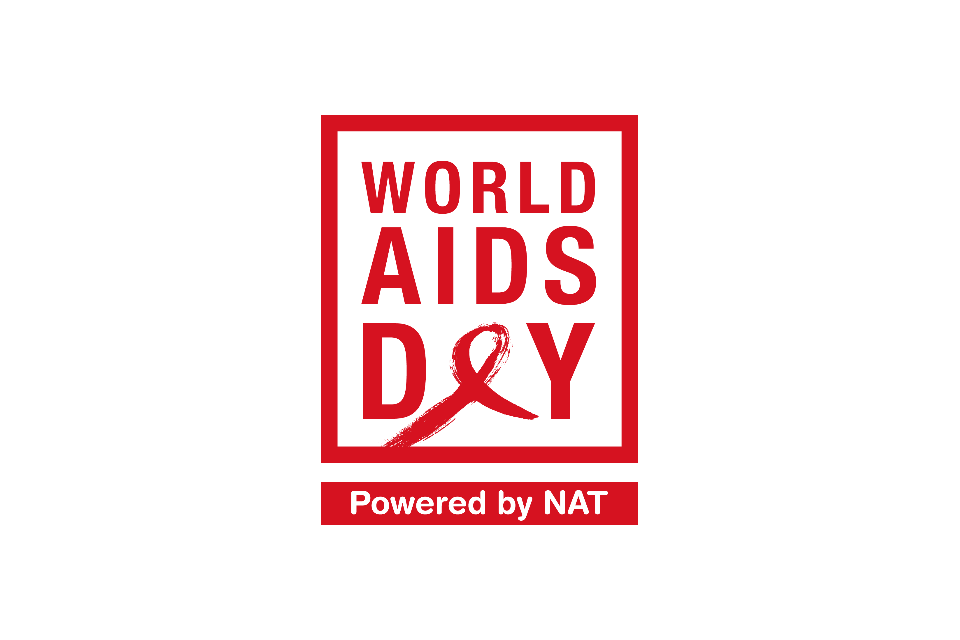
Tomorrow, 1 December, is World AIDS Day. In our roles as, respectively, Civil Service Disability Champion and LGB&TI Champion, we have decided to come together to raise awareness.
The first global health day, established 30 years ago, World AIDS Day is a time to show support for people living with HIV and to commemorate those who have died from an AIDS-related illness.
Human Immunodeficiency Virus (HIV) damages the cells in your immune system and weakens your ability to fight everyday infections and disease.
Acquired Immune Deficiency Syndrome (AIDS) is the name used to describe a number of potentially life-threatening infections and illnesses that happen when your immune system has been severely damaged by HIV.
The significant and continuing impact that HIV and AIDS can have without treatment means that it qualifies as a disability under the Equality Act 2010.
However, individuals with the condition may not consider themselves to be disabled. Anyone can contract HIV if they are sexually active, regardless of their sexual orientation or where they come from – but HIV rates in the UK are higher among gay and bisexual men. Other communities are also disproportionately affected in the UK, such as some ethnic minority communities, older men, and urban populations. The National AIDS Trust (NAT) has more information .
Changing attitudes
HIV and AIDS had a huge impact on the gay community in the 1980s. The use of the term “gay plague” in some parts of the press at the time created an atmosphere of fear of, and within, the LGBT community, making many people, gay or not, reluctant to come forward to be tested for HIV.
Most gay men who lived through that period will have known, or known of, at least one person who died.
35 million: the estimated number of people across the world who have died from HIV or AIDS (Source: World Aids Day)
101,000: the number of people living with HIV in the UK* (Source: World Aids Day)
6,000: HIV diagnoses in the UK every year (Source: National AIDS Trust)
Fortunately, attitudes towards sexual orientation have slowly changed, and there have been significant advances in the medical treatment available for HIV. It is no longer a fatal infection, but is now a chronic but manageable condition. When diagnosed promptly, people in the UK with HIV can expect to live full lives.
Most inclusive employer
This does not mean, however, that HIV is free from stigma. Myths, stereotypes, and negative opinions about what it means to be HIV-positive persist, often making it difficult for people to disclose their HIV status.
The Civil Service Diversity and Inclusion Strategy sets out the Civil Service ambition to be the most inclusive employer in the UK by 2020. Accordingly, today we wish to show our support for all individuals living with HIV and AIDS, particularly our Civil Service colleagues.
In order to create an inclusive workplace for those who are HIV-positive, we remind all civil servants that information about a colleague’s HIV status must be treated as confidential. If someone discloses their status to you, they are trusting you with sensitive knowledge about themselves, which they may not wish to be shared with anyone else. You should support them as you would any other colleague with a chronic illness.
We encourage colleagues living with HIV to be as open as you are comfortable to be, and to support each other. We recognise HIV as a long-term health condition, even though you may not consider yourself to be disabled; and we recognise that you may need to take time to focus on your healthcare.
If you would like to find out more about HIV and AIDS, then there is plenty of information available from the NHS, the World Aids Day website, and the UK National AIDS Trust. For support and advice you can contact the Terrence Higgins Trust, and line managers may be interested in reading the National AIDS Trust Advice for Employers.

4 comments
Comment by Thank you posted on
Dear Philip and Sue,
I feel deeply grateful to you both for having written this together. Discovering who to trust is such a heartbreaking process. Once sensitive information is shared without your consent there is no going back. Just now it is so much safer to stay hidden.
Comment by Mitch James posted on
Thank you for promoting WAD 2018, it helps raise awareness and helps reduce stigma, sadly it is still a problem many colleagues face. We have come a long way in 30 years, the UK Civil Service by promoting and supporting WAD 2018 highlights how far we have come in our inclusion journey.
Comment by Mitch James posted on
I agree with you Gavin, Lloyds comments will help many people with HIV, it was great to see both front benches supporting WAD 2018.
Comment by Gavin Thomas posted on
Thank you for promoting this very important issue.
I would certainly like to commend Lloyd Russell-Moyle, Member of Parliament for Brighton Kempton who spoke in the House of Commons about being HIV positive for the past 10 years. I was certainly humbled by his speech and hope that this will inspire others to tell relatives and friends about being HIV positive.